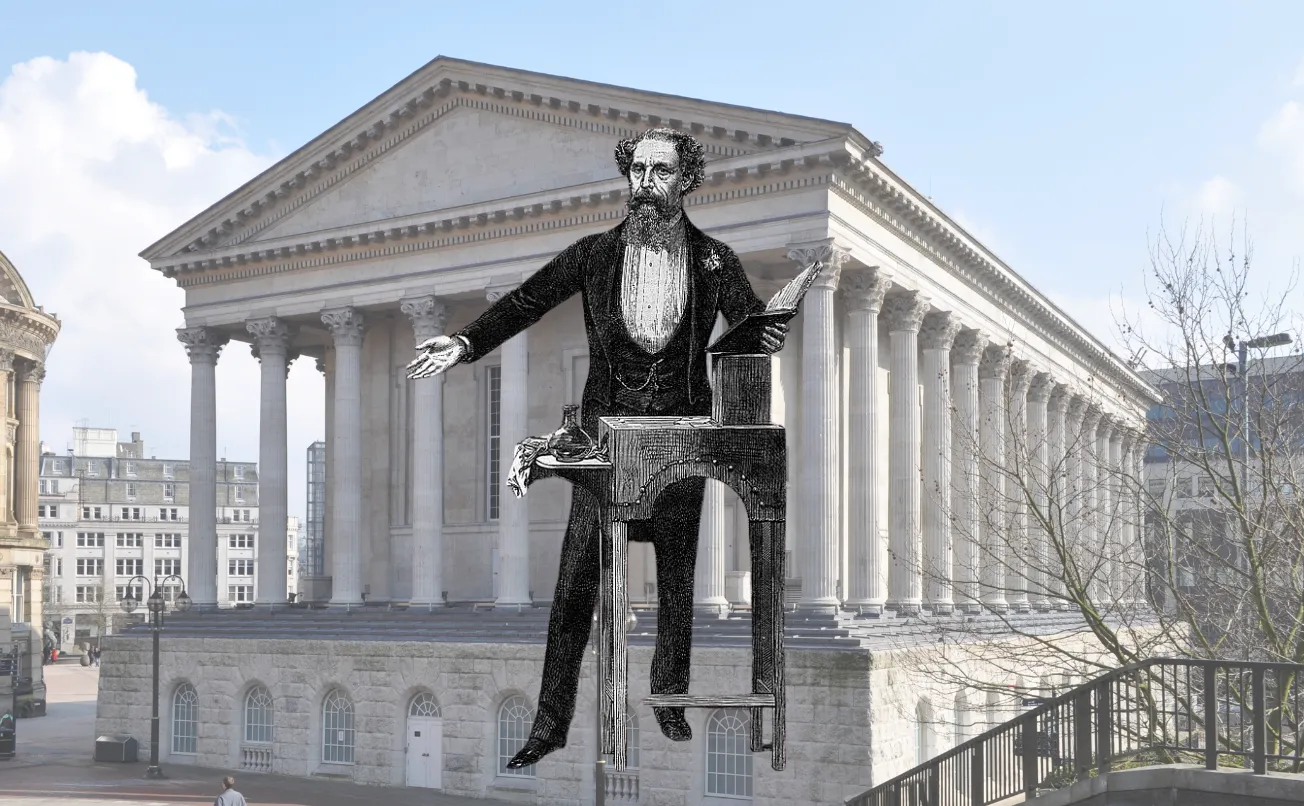Dear Patchers — how does a national college dedicated to high speed rail work when its senior management doesn't know anything about trains? Short answer: it doesn’t.
Today’s story follows the byzantine ins-and-outs of a failed further education college in Birmingham. The National College for High Speed Rail opened in 2016-2017 in a blaze of positivity, excitement and, crucially, government and local funding. Back in 2017, the then Secretary of Education, Justine Greening sung the college’s praises as it opened: “It is part of how we are steadily transforming technical education in this country, training up a new generation of skilled young people.”
Yet, eight years later and the college has disappeared. At least £57.9 million was spent by both the central government, South Yorkshire’s combined authority and Birmingham’s local enterprise partnership. And yet, by the time the college closed in 2023, across both Birmingham and Doncaster, it had less than 20 students left. How could both the government and the college’s leadership team get it so wrong? How could the seemingly simple project of training young people to be railway engineers turn into a fiasco of legal challenges, rising budget deficits, harassment claims, and disproportionate executive pay?
In order to read the full story, you’ll need to be signed up as paying member.
Journalism like this, which takes the time to dig into complicated stories and uncover new information, isn’t cheap to produce, and The Dispatch is almost entirely reader funded. That makes us accountable to you, rather than advertisers. We're currently closing in on a major milestone: 1000 paying members. It would be amazing to get over the line (we’re currently 15 short) before our first birthday party next week. If you appreciate the work we do, please consider signing up today.
Things to do
🏃This Saturday, partake in what’s described as ‘the mother of all obstacles courses,’ at Shropshire Mud Run. With river crossings, head dunks, climbs, crawls, water slides, tunnels and tyre pits, there’s optional 5k or 10k distances. This untimed event allows you to go at your own pace, with money saving options if you book with friends or family. Tickets from £23.46.
🎥 Perhaps roll on down to Doc N Roll Fest on Sunday at the Mockingbird. The cinema is hosting a screening and Q/A with rapper and singer, Hak Baker, to mark the release of Hakeem – a documentary about his life. The film follows Baker over a five year period, and tracks the traumas of class and masculinity in the wake of sudden stardom. Tickets from £4.99.
🛶 If the pictures aren’t your thing, join this women’s bell boat paddle session on Sunday at 3pm. In maximum groups of ten, this low-impact sport is great for families, friends – and even non-swimmers. The bell boat is a twin-hulled watercraft propelled by a seated crew with single-bladed paddles. Due to the boat’s stability, there’s no fear of falling in, instead promoting teamwork and cooperation for people of all ages. Make sure to wrap up warm, wear comfortable footwear, waterproofs and sensible clothes – no jeans! Tickets from £3.
📖 There’s an important book launch happening on Monday. The bestselling memoir Born, raised, and murdered in Germany: the too short life of my brother Gökhan Gültekin and the Hanau Shootings has been translated into English. On 19 February 2020, nine people were killed in a racist terror attack in Hanau, Germany. One of them was 37-year-old Gökhan ‘Gogo’ Gültekin. Together with his friend Mutlu Koçak, Gökhan’s brother Çetin Gültekin wrote a powerful book about Gökhan’s life and death. Excerpts from the book will be read, followed by a Q&A in English. Tickets are free, with the options for in person or online viewing.

“This ain’t the National Rail College anymore mate,” a man behind a large metal fence tells me as he takes a drag from a cigarette. He’s still wearing a National College for Advanced Transport and Infrastructure lanyard. “It’s a sixth form now,” he says.
I’m stood outside the former site of the National College for High Speed Rail in central Birmingham. In 2017, the site was opened to huge fanfare with a planned start-up budget of up to £160 million from central government. It was part of the former Lib-Dem and Conservative coalition government’s masterplan to revive technical education, build much-needed infrastructure, and properly pursue a British industrial strategy.
From its first cohort of students in 2017, the college only lasted six years, closing in the Summer of 2023 under a cloud of financial mismanagement, low student demand, legal trouble and extortionate senior management pay packets of up to £190,000 (according to reports, the chief executive and principal, Clair Mowbray was earning more than the Prime Minister while simultaneously expensing for Cadbury mini eggs).
By June 2023, the college was only at 2% of its maximum capacity of 1,200 students: around 24 full-time learners. When the college finally closed they only had 16-19 remaining students in need of transfer to other institutions. This flagship government project, which received council backing, was an unmitigated disaster.
I told him I knew about the closure and asked him how the college failed. The man tells me he doesn’t know, it was all very quick. “We had Just Stop Oil and anti-HS2 protestors here the other day though…they weren’t happy when they found out it ain’t an HS2 college anymore. About four protestors in the rain, a classic case of mistaken identity. They got rained out eventually.”
Birmingham deserves great journalism. You can help make it happen.
You're halfway there, the rest of the story is behind this paywall. Join the Dispatch for full access to local news that matters, just £8/month.
SubscribeAlready have an account? Sign In







